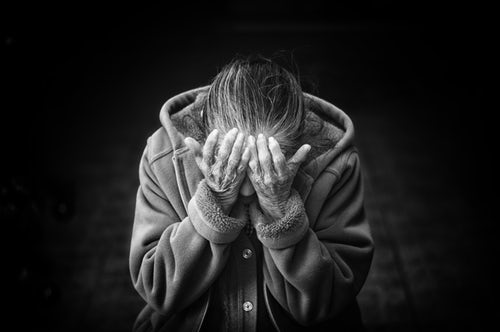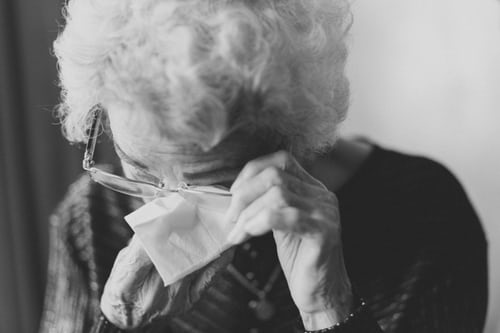DO YOU KNOW anyone suffering from grief this holiday season? Are you looking for ways to lessen their heart’s pain?
Today we’ll continue with our series on grief and helping others deal better with grief deepened by holiday loneliness and melancholy. For the first and second list of suggestions, see last week’s and the previous weeks’ posts.
First, listen—
I mentioned this in a previous post, but I really can’t stress it enough.
Set a guard over your mouth, keep watch over the door of your lips, and
LISTEN.
Most of us are really BAD listeners. Really, REALLY bad. We’re always ten steps ahead of the speaker, figuring out what clever response we’re going to offer, or what great advice we can give that’ll really help them move forward in their grief. Advice no other bright person has been able to come up with.
Maybe we’re trying to impress ourselves, or others—or both—or maybe we’re insecure and believe dead space or no response is a sin. But it’s not.
One of the best responses I ever received after the death of our baby daughter was from the head boss where I was teaching. He blinked at me a couple of times before saying, “Gee, I really don’t know what to say. I’m so sorry. I don’t have any idea what you’re going through.”
Even though I didn’t have warm and fuzzy feelings for this guy (he was kind of a brute and bully), I so appreciated his honest response. He’d finally been stuck in a situation where he didn’t have an answer, and he was honest enough to admit it.
I voiced my appreciation. “Thank you. That’s the best thing you could have said to me right now.”
He sighed in relief.
So when you’re really interested in helping a grieving friend, acquaintance or co-worker, invite them out for lunch or coffee and let them talk, or not. Find out more about their loved one. If they’re a person of faith, ask if you can pray for them. Maybe ask them that even if you don’t know their faith background. Invite them to share some of their best memories of their loved one.
And then just clam up, and listen.
If you do think you might have some helpful advice, do not start out by telling them what they should do. You can, however, tell them what helped you in the same situation, or someone you know who survived the grieving process.
Don’t make judgment calls—
When a loved one dies, the surviving person’s life is turned upside down. If they now have to make decisions they’ve never made, or manage things they’ve never managed before, they’re likely to feel overwhelmed and paralyzed. And they’re likely not even thinking straight.
Grief has a way of screwing up your mental processes. You can’t make decisions, you can’t remember things, you feel unbalanced and out-of-touch with the rest of the world—which seems to be oblivious to your loss or pain.
Cut the grieving person a lot of slack, and don’t expect too much from them. While they might have a lot of energy to plan funerals or memorial services, that energy will likely disappear quickly and leave the person disoriented.
I’ve heard it said that while losing a child is the most painful experience any parent can go through, losing a spouse is the most disorienting. I can personally attest to the first. I have close friends and relatives who can attest to the second.
Allow—expect—the grieving person to be and act disoriented, angry, lost, anti-social, etc.
Your understanding and presence are more important than advice.
Don’t expect them to talk—
If a grieving person decides to join you for a holiday event, or go to a movie with you, or out to lunch, don’t expect them to talk. They might be too exhausted—physically or mentally—to do much communicating. And they’ll be grateful that you didn’t expect much out of them.
Or, in an attempt to cover up their pain, they might be extra chatty. Just plan to do a lot of nodding and sympathizing.
And if they turn you down, be okay with that too. Grieving people often need space to just, well—grieve. Without eyeballs hovering around. They want to lose it. Scream to the heavens. Pound their pillows and exhaust themselves.
But if you haven’t seen or heard from a grieving person for a few days, or week or more, give them a call or text to let you know you’re thinking about them and are available anytime they might want to talk or rant. Let them know you love them.
This is their grief, and they need to handle it their way.
NEXT WEEK, we’ll head into some specific things to NOT say to grieving people, especially those who have lost children and will face their first Christmas without that child. If you’re a grandparent, you’ll want to read this advice too.
Until then, be on the lookout for grieving people you can minister to and pray that God will give you the right words to say.
Blessings,
Andrea
Andrea Arthur Owan is an award-winning inspirational writer, fitness pro and chaplain. She writes and works to help people live their best lives—physically, emotionally, and spiritually.




